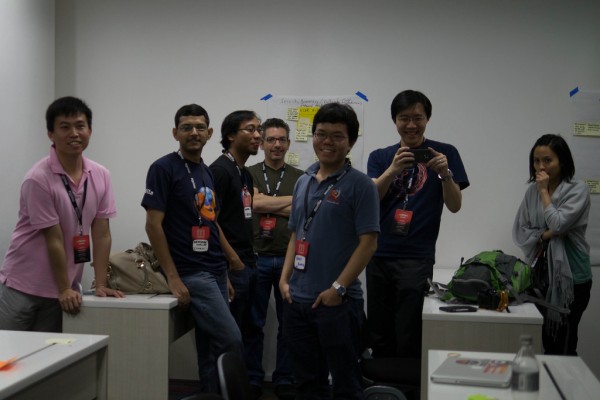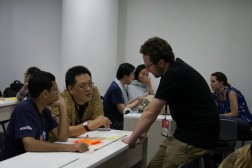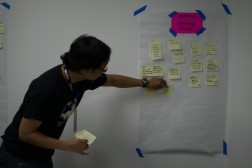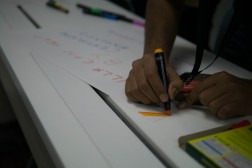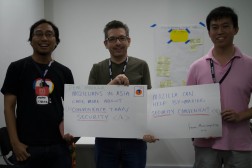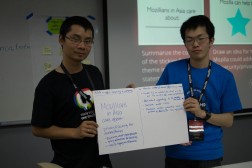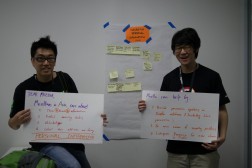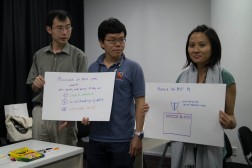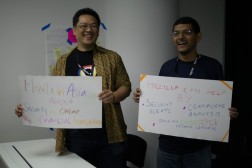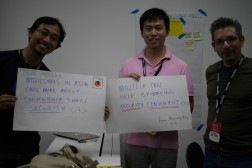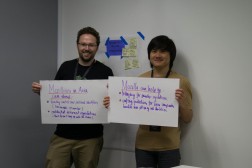Last month, I attended Mozcamp Asia in Singapore and led a workshop aimed towards understanding security and privacy concerns in the region. This topic is important for the Firefox User Experience team because we want to get a global perspective on what our users need to feel safer online, especially because they might be very different from the ones we’re familiar with in the West.
We had 17 participants in the workshop who represented the perspectives of a whopping 13 countries (Korea, Indonesia, China, Taiwan, Malaysia, Hong Kong, Philippines, Singapore, India, Japan, New Zealand, Australia, United States)! During the workshop, we worked together to come up with the most relevant issues in Asia and suggestions for how Mozilla could address these needs.
Pairs of participants from different countries interviewed each other to understand what online privacy and security were like in their partner’s country. Then, they organized notes of what people said into various categories around the room, such as “Social Media”, “Banking and Shopping”, “Government Policies and Intervention”, and “Mobile Devices”. The group even came up with a new category called “User Awareness/Security Awareness” which was all about how people generally didn’t understand security/privacy well enough to care about it.
Once all the notes were organized, I asked people to stand in front of the issue that they cared about the most. Interestingly enough, the topics of “Online Advertising”, “Fraud, Hackers, Viruses”, and “Banking and Shopping” didn’t get any votes. When we discussed this, people explained that it’s not that these issues weren’t important. In the case of advertising and typical security attacks, people just felt there wasn’t anything more they could do to make a difference besides take some precautions. They also expected the browser to take responsibility for protecting them against risks. Banking and shopping online wasn’t common in all parts of Asia so this too was less of a concern for most people.
For the final task, participants worked in small groups to make a poster-sized “postcard to Mozilla”, explaining the issue they cared most about. They also came up with some ideas of how Mozilla could address that particular issue. The most poignant statement for me was one that came out of the new category that the group created. It said:
“Mozillians in Asia care more about convenience than security. Mozilla can help by making security convenient“.
This call to action really hit home for me because though we gained some insights about Asia that are different from what we’re familiar with in the U.S., we also learned that there are universal themes that people are earnest about. To clarify, everyone in this workshop wants to be safe online. But no one wants to spend all their time trying to figure out confusing settings and security messages! The more we at Mozilla can make online security / privacy usable, the more we can help users in all parts of the world feel safer.
I’m extremely thankful to all the participants in the workshop and to my co-facilitator, Paul Theriault, for the insightful conversations that emerged. I’m working on another blog post about the core themes that emerged from the work. In the meantime, you can find more of my pictures from Mozcamp Asia here.
Dec. 18, 2012 Update: You can find the link to the insights blog post here.
Everyone’s postcards to Mozilla:
